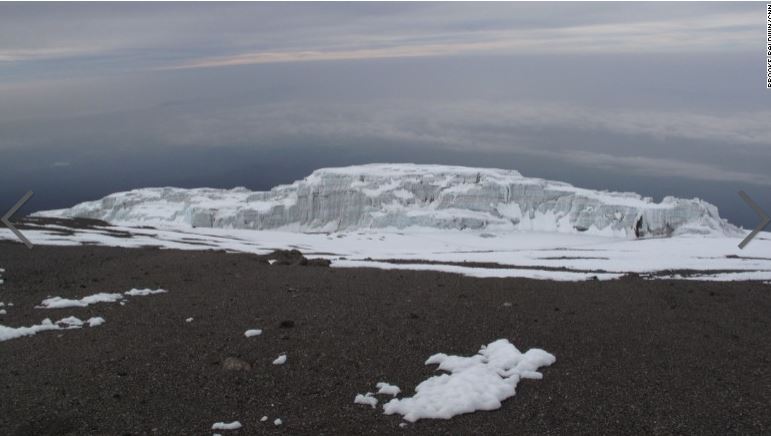HUDSON, Mass. (AP) — The diagnosis of cancer came as a complete shock to Gayle Garlick when she got the news in June of 2015.
Garlick, who owns a gardening business, had not been feeling well for a few days prior, but expected it was Lyme disease because many other local gardening professionals had contracted the illness at that time. Garlick underwent blood tests and went golfing the following day. After playing three or four holes she peeked at her phone.
“It was blowing up,” said Garlick, 54. “The doctor’s office had called many times. They said `Go home right now, don’t go anywhere.’ It was a shock.”
A similar level of shock and surprise filled Garlick’s family and friends when she announced her plans to scale all 19,341 feet of Mt. Kilimanjaro in March as part of the Leukemia and Lymphoma Society’s Climb 2 Cure. Kilimanjaro is the tallest mountain in Africa.
“They were pretty shocked and thought I was crazy,” she said with a laugh. “I just feel like `why wait?”`
Hours after she was diagnosed with acute myleoid leukemia – a type of blood and bone marrow cancer that leads to excess immature white blood cells that weakens the immune system – Garlick was hospitalized at Massachusetts General Hospital and underwent 24-hour rounds of chemotherapy for seven straight days.
“I never thought I was going to die,” she said. “I always believed it was going to be OK.”
Garlick went through two more bouts of 24/7 chemotherapy in August for seven days and September for five days before receiving a lifesaving bone marrow transplant on Sept. 15, 2015.
“I started the long, slow healing process,” she said. “At that time I was a mess. I was in bad shape when I came home.”
Scrolling through Facebook one afternoon this summer, an advertisement for the Leukemia and Lymphoma Society’s Climb 2 Cure appeared on Garlick’s screen. Groups from across the country were gathering to climb Mt. Kilimanjaro to raise money for the society. Garlick knew she wanted to take on the challenge, but her doctors were initially unsure if her health would allow it.
“I thought climbing Kilimanjaro would be cool,” she said. “I was looking for a way to give back to the Leukemia and Lymphoma Society. It took a good month of negotiating with my medical team.”
Since receiving the thumbs up from her doctors in October, Garlick has been busy working to reach her $10,000 fundraising goal and training for the eight-day climb up and down the mountain. She goes on a training hike each weekend and does yoga and cardio during the week.
“After the first training hike, which was a few miles, I was sick, weak and winded,” she said. “It was terrible. I thought, `what have I got myself into.”‘
The training hikes have gotten easier and Garlick is ready and excited for the mental and physical test of scaling Kilimanjaro.
“Success is not guaranteed,” she said. “I hope I make it to the summit. I’m really excited to climb with the team I’ve been training with.”
Reaching the top will be an emotional experience for Garlick knowing she was fighting cancer less than two years earlier.
“I’ll probably cry,” she said. “I’d be surprised if I don’t cry.”
Copyright 2024 The Associated Press. All rights reserved. This material may not be published, broadcast, rewritten or redistributed.

